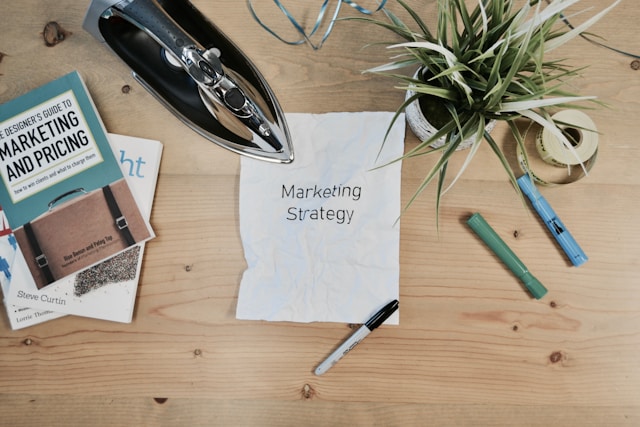In the rapidly evolving digital landscape, artificial intelligence (AI) and automation are no longer just buzzwords—they are pivotal tools transforming the way businesses approach marketing. For digital marketing agencies, staying ahead of the curve means embracing these technologies to enhance efficiency, personalize customer experiences, and drive better results for their clients. This article explores how AI and automation are reshaping digital marketing services, highlighting tools and strategies for automating tasks like content creation, ad placement, and customer engagement. We’ll also delve into how these technologies boost efficiency and effectiveness in marketing campaigns.
The Transformation of Digital Marketing Through AI and Automation
Artificial intelligence and automation have introduced a paradigm shift in digital marketing by enabling data-driven decision-making and streamlining repetitive tasks. Here’s how they’re making an impact:
1. Personalized Content Creation
AI algorithms analyze vast amounts of data to understand consumer behavior, preferences, and trends. This analysis allows for the creation of highly personalized content that resonates with target audiences.
- Dynamic Content Generation: Tools like Persado and Phrasee use AI to craft compelling marketing copy tailored to specific audience segments.
- Content Recommendations: AI-driven platforms recommend content to users based on their past interactions, increasing engagement and conversion rates.
2. Improved Ad Placement and Targeting
Automation in ad placement ensures that advertisements reach the right audience at the right time, maximizing the return on investment (ROI).
- Programmatic Advertising: This automated buying and selling of online advertising uses AI to target ads to specific audiences in real-time auctions. Platforms like Google Ads and The Trade Desk facilitate programmatic ad buying.
- Predictive Analytics: AI models predict future consumer behaviors, allowing marketers to optimize ad strategies proactively.
3. Enhanced Customer Engagement
AI-powered tools enable personalized and timely interactions with customers, fostering stronger relationships.
- Chatbots and Virtual Assistants: Implementing chatbots like Drift or Intercom on websites provides instant customer support, answers queries, and guides users through the sales funnel.
- Email Marketing Automation: Tools like Mailchimp and SendinBlue automate email campaigns, sending personalized messages based on user behavior and preferences.
Tools and Strategies for Automating Digital Marketing Tasks
Embracing AI and automation requires the right set of tools and a strategic approach. Here’s how digital marketing agencies can leverage these technologies:
1. Automating Content Creation
Creating high-quality content consistently can be resource-intensive. AI tools streamline this process.
- AI Writing Assistants: Platforms like Jarvis and Copy.ai generate blog posts, social media updates, and ad copy based on input keywords and desired tone.
- Content Curation Tools: Tools such as Feedly and BuzzSumo automate the discovery of relevant content to share with audiences, keeping them engaged with fresh information.
Strategy Tip: Use AI to generate content drafts, then have human editors refine them to ensure they align with brand voice and messaging.
2. Automating Ad Placement
Automated ad placement optimizes ad spend and improves targeting accuracy.
- Programmatic Advertising Platforms: Utilize platforms that use AI algorithms to bid on ad spaces in real-time, targeting users most likely to convert.
- Social Media Ad Automation: Tools like AdEspresso and Hootsuite Ads automate the creation, management, and optimization of social media ad campaigns.
Strategy Tip: Continuously monitor automated ad campaigns to adjust parameters as needed, ensuring they align with overall marketing objectives.
3. Automating Customer Engagement
Automation enhances customer interactions without sacrificing personalization.
- Chatbots and AI Assistants: Implement chatbots on websites and messaging apps to provide 24/7 customer support.
- CRM Automation: Customer Relationship Management systems like Salesforce and HubSpot automate customer data management, segment audiences, and trigger personalized communications.
Strategy Tip: Integrate chatbots with CRM systems to personalize interactions based on customer history and preferences.
4. Automating Data Analysis
Data-driven decision-making is crucial for successful marketing campaigns.
- Analytics Tools: AI-powered analytics platforms like Google Analytics 4 provide insights into customer behavior and campaign performance.
- Predictive Modeling: Tools such as IBM Watson Marketing predict future trends and customer actions, informing strategic planning.
Strategy Tip: Regularly review analytics reports to identify patterns and adjust marketing strategies accordingly.
Boosting Efficiency and Effectiveness in Marketing Campaigns
AI and automation offer significant advantages that enhance the efficiency and effectiveness of marketing efforts for digital marketing agencies. By streamlining operations and providing deeper insights, these technologies enable agencies to deliver more impactful campaigns with less manual effort.
1. Time and Resource Savings
Automating repetitive tasks frees up valuable time for marketing teams to focus on strategic initiatives.
Reduced Manual Labor
- Automated Scheduling: Tools like Buffer, Hootsuite, and Sprout Social allow agencies to schedule social media posts across multiple platforms in advance. This eliminates the need for manual posting and ensures consistent content delivery.
- Email Automation: Platforms such as Mailchimp and ActiveCampaign automate email marketing by sending personalized messages based on triggers like user behavior, sign-up dates, or special occasions (e.g., birthdays).
- Content Management: AI-powered content management systems can automatically format and distribute content, reducing the time spent on editing and uploading.
Scalability
- Managing Multiple Campaigns: Automation enables agencies to handle a larger number of campaigns simultaneously without proportionally increasing the workload. For example, programmatic advertising platforms can manage thousands of ad placements in real-time.
- Resource Optimization: By automating routine tasks, agencies can reallocate human resources to areas that require creativity and strategic thinking, such as campaign planning and client relationship management.
Impact
- Faster Turnaround: Campaigns can be launched and adjusted more quickly in response to market trends or client needs.
- Consistency: Automation ensures that tasks are performed consistently and accurately, reducing the likelihood of errors that can occur with manual processes.
2. Enhanced Personalization
AI enables hyper-personalization, tailoring marketing messages to individual customer preferences.
Improved Customer Experience
- Dynamic Content: AI algorithms analyze customer data to present personalized content in real-time. Websites and emails can display different images, offers, or messages based on the viewer’s past behavior and preferences.
- Personalized Recommendations: E-commerce platforms like Amazon use AI to recommend products that align with a customer’s browsing and purchase history, enhancing the shopping experience.
Increased Conversion Rates
- Behavioral Targeting: By understanding individual customer journeys, AI allows marketers to send the right message at the right time. For instance, retargeting ads can be shown to users who have abandoned shopping carts, encouraging them to complete the purchase.
- Customized Offers: AI can identify which promotions are most likely to appeal to specific customers, increasing the effectiveness of discounts and special offers.
Impact
- Higher Engagement: Personalized messages are more likely to catch the recipient’s attention, leading to higher open and click-through rates.
- Customer Loyalty: Tailoring experiences to individual preferences fosters a stronger connection between the customer and the brand.
3. Data-Driven Insights
AI analyzes large datasets to uncover actionable insights that inform marketing strategies.
Optimized Campaigns
- Real-Time Analytics: AI-powered tools provide instant feedback on campaign performance, allowing marketers to make swift adjustments. Platforms like Google Analytics 4 offer advanced insights into user behavior and engagement.
- A/B Testing Automation: AI can automate the process of testing different campaign variables (e.g., headlines, images, CTAs) to determine which combinations yield the best results.
Predictive Analytics
- Forecasting Trends: AI models can analyze historical data to predict future consumer behavior, helping marketers anticipate market shifts and adjust strategies accordingly.
- Customer Segmentation: By clustering customers based on behavior and preferences, AI enables more precise targeting of marketing efforts.
Impact
- Informed Decision-Making: Data-driven insights reduce reliance on guesswork, leading to more effective marketing strategies.
- Competitive Advantage: Agencies that leverage AI analytics can stay ahead of industry trends and outperform competitors who rely on traditional analysis methods.
4. Cost Efficiency
By improving targeting and automating processes, AI reduces unnecessary spending.
Better ROI
- Efficient Ad Spend: AI-driven platforms like Facebook Ads and Google Ads optimize ad placements by targeting audiences most likely to convert, reducing wasted impressions.
- Budget Optimization: AI tools can automatically reallocate budget to high-performing campaigns or channels, ensuring the best possible return on investment.
Resource Allocation
- Reduced Overhead: Automation decreases the need for large teams to handle manual tasks, lowering labor costs.
- Investment in Growth: Funds saved through increased efficiency can be redirected toward strategic initiatives such as market expansion, new service offerings, or technology upgrades.
Impact
- Lower Customer Acquisition Costs: More efficient targeting and personalization reduce the cost of acquiring new customers.
- Profitability: Improved ROI and cost savings contribute directly to the agency’s bottom line, enhancing overall financial health.
Overall Benefits for Digital Marketing Agencies
- Enhanced Productivity: Teams can accomplish more in less time, increasing the agency’s capacity to take on additional clients or projects.
- Improved Client Satisfaction: Delivering better results through efficient and effective campaigns strengthens client relationships and can lead to repeat business and referrals.
- Innovation and Growth: Freed from routine tasks, team members can focus on creative strategies and innovative solutions that drive the agency forward.
Challenges and Considerations
While AI and automation offer numerous benefits, digital marketing agencies should be mindful of potential challenges.
1. Over-Reliance on Automation
- Loss of Human Touch: Excessive automation can make interactions feel impersonal.
- Quality Control: Automated content may lack creativity or nuance without human oversight.
Solution: Maintain a balance by combining automation with human expertise to ensure authenticity and quality.
2. Data Privacy Concerns
- Regulatory Compliance: Agencies must adhere to data protection laws like GDPR and CCPA.
- Consumer Trust: Mishandling data can damage brand reputation.
Solution: Implement robust data security measures and be transparent with customers about data usage.
3. Integration Complexities
- Technical Challenges: Integrating AI tools with existing systems can be complex.
- Training Requirements: Staff may need training to effectively use new technologies.
Solution: Plan for integration with expert support and invest in training programs for team members.
The Future Outlook for Digital Marketing Agencies
The integration of AI and automation is not just a current trend but the future of digital marketing. Digital marketing agencies that embrace these technologies position themselves as industry leaders.
Emerging Trends
- Voice and Visual Search: AI is enhancing search capabilities, requiring marketers to optimize content accordingly.
- Augmented Reality (AR) Marketing: AI-powered AR provides interactive experiences that engage customers.
- Hyper-Personalization: Advanced AI will enable even more precise targeting and personalization.
Opportunities for Agencies
- Service Expansion: Offering AI-driven services differentiates agencies in a competitive market.
- Client Success: Enhanced efficiency and effectiveness lead to better client outcomes and satisfaction.
- Innovation Leadership: Agencies at the forefront of AI adoption set industry standards and attract top talent.
Conclusion
Artificial intelligence and automation are revolutionizing digital marketing by streamlining operations, enhancing personalization, and driving better results. For digital marketing agencies, adopting these technologies is essential to remain competitive and deliver superior services to clients. By leveraging AI tools for content creation, ad placement, customer engagement, and data analysis, agencies can boost efficiency and campaign effectiveness while navigating challenges with strategic planning.
As the digital landscape continues to evolve, agencies that integrate AI and automation into their core strategies will lead the way in innovation, customer satisfaction, and business growth. The future of digital marketing is here, and it’s powered by artificial intelligence.










Leave a Reply